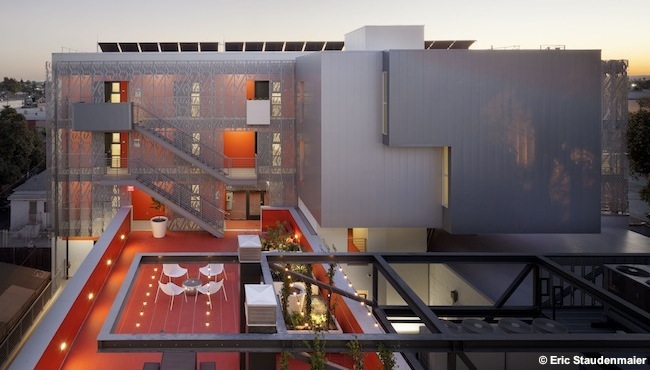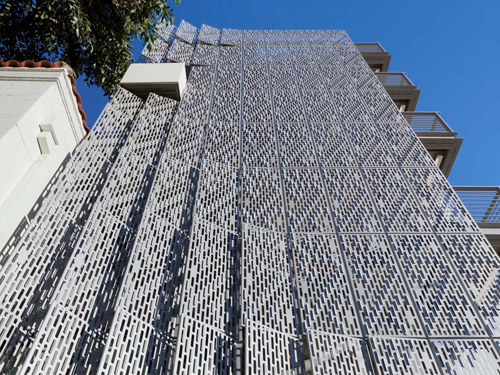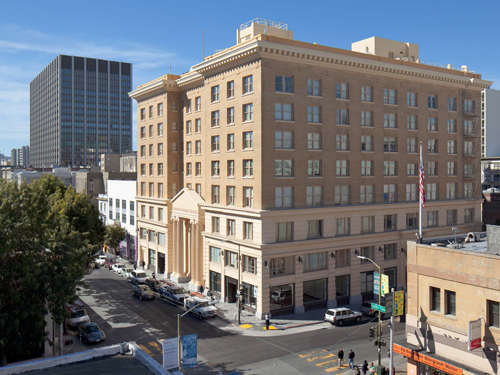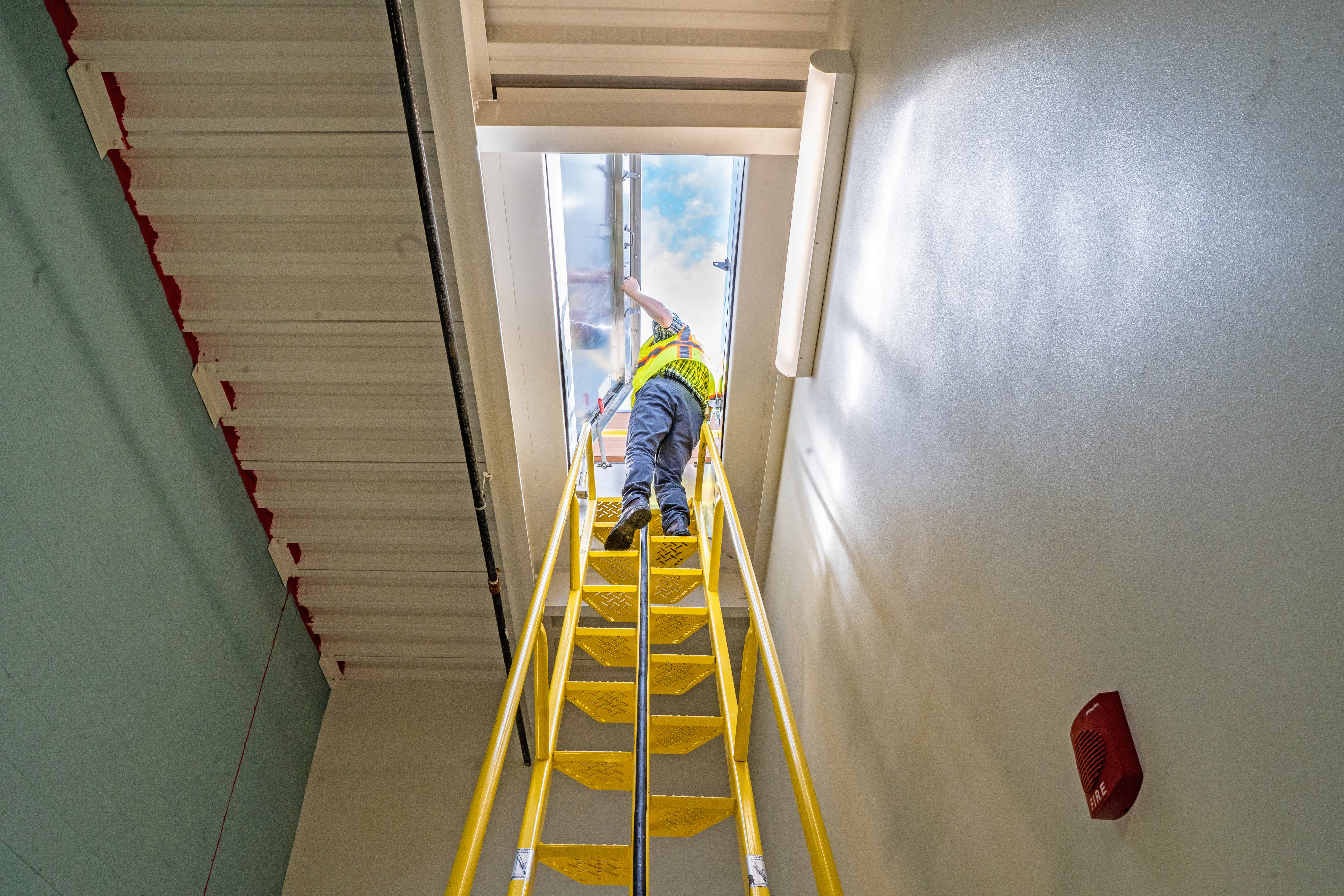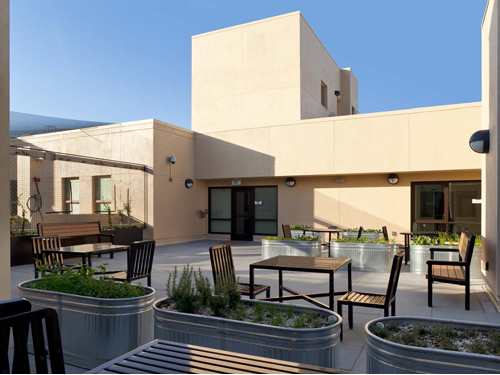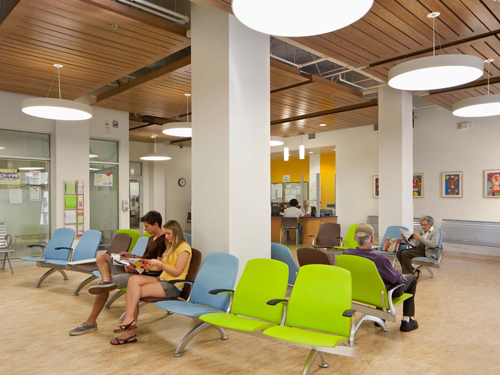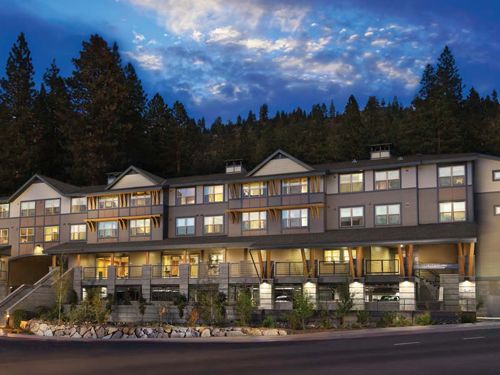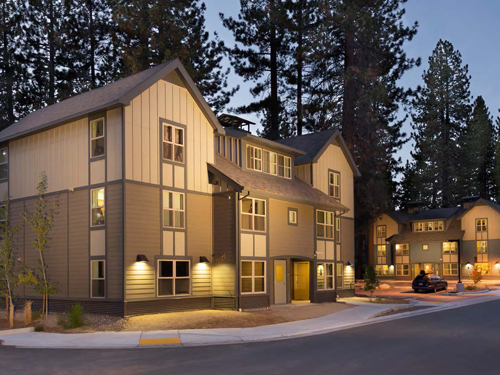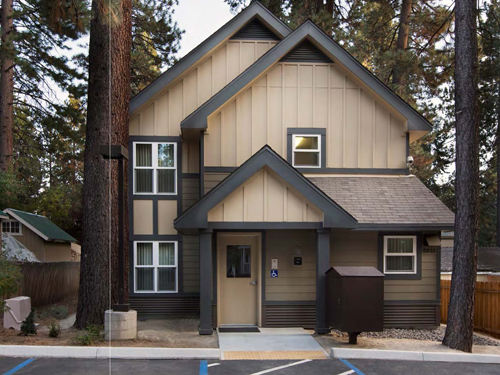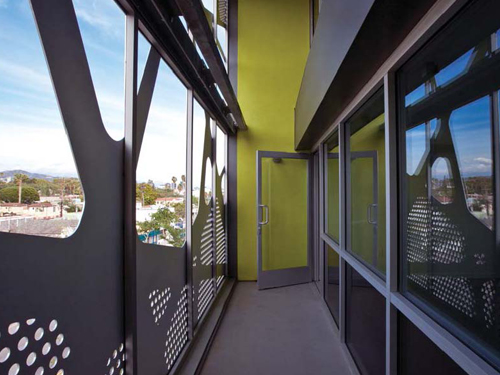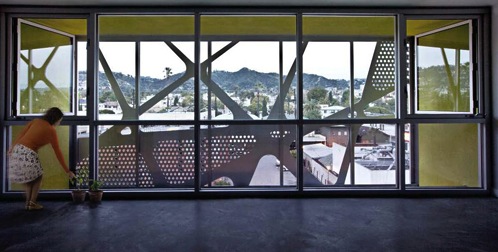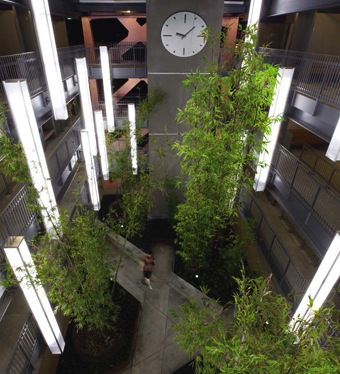The American Institute of Architects’ (AIA) Housing and Custom Residential Knowledge Community, in conjunction with the Office of the Secretary of the U.S. Department of Housing and Urban Development (HUD), recognized four recipients of the 2014 AIA/HUD Secretary Awards.
The categories of the program include Excellence in Affordable Housing Design, Creating Community Connection Award, Community-Informed Design Award and Housing Accessibility - Alan J. Rothman Award. These awards demonstrate that design matters, and the recipient projects offer examples of important developments in the housing industry.
“This year’s recipients are shining examples of how the latest innovations in design, materials and building techniques are not just for high-end housing but can also offer lower income families exceptional homes they can actually afford,” said HUD Secretary Shaun Donovan.
The jury for the 2014 AIA/HUD Secretary Awards included Nancy Ludwig, FAIA, (Chair), ICON architecture, inc.; David Barista, Building Design+Construction; Louise Braverman, FAIA, Louise Braverman Architect; Keith Fudge, U.S. Department of Housing and Urban Development; Paul Joice; U.S. Department of Housing and Urban Development and Jean Rehkeamp Larson, AIA, Rehkamp Larson Architects, Inc.
Category One: Excellence in Affordable Housing Design Award
28th Street Apartments, Los Angeles
Koning Eizenberg Architects
This project restored a 1926 YMCA building, designed by noted African American architect Paul R. Williams and listed on the National Register of Historic Places, and added a new five-story building at the rear of the existing structure.
The original building and addition house two nonprofit organizations; one offers neighborhood youth training and employment programs and the other provides 49 units of affordable housing for youth leaving foster care, the mentally ill, and the chronically homeless.
Support services are offered on-site, and residents have access to a roof garden, laundry, and lounge.
Category Two: Creating Community Connection Award
Kelly Cullen Community, San Francisco
Gelfand Partners Architects; Knapp Architects
San Francisco’s historic Central YMCA (1909), a nine-story Classical building located in the city’s Tenderloin neighborhood, has been transformed into supportive housing for the homeless and a health center for residents of supportive housing and the homeless.
The adaptive use project created 174 micro-units of permanent housing and preserved the original sky-lit second-floor lobby, auditorium, full-size gymnasium, offices, and meeting rooms.
A new radiant heating system, energy efficient lighting and ventilation, and the use of healthy materials support sustainability and resident well-being.
Category Three: Community-Informed Design Award
Kings Beach Housing Now, Kings Beach, Calif.
Domus Development; YHLA Architects
This project provides affordable workforce housing for low-income workers and families who previously lived in dilapidated, substandard housing in the Lake Tahoe Basin.
Consisting of nine buildings located on five scattered sites, Kings Beach Housing Now provides 77 LEED Silver apartments that reduce negative impacts on the environment, reuse infill land, and preserve Lake Tahoe’s beautiful open spaces. In addition, an advanced biofiltration system naturally filters 100% of on-site storm water, which prevents sediments and pollutants from negatively impacting the lake.
Category Four: Housing Accessibility | Alan J. Rothman Award
Sierra Bonita Housing, West Hollywood, Calif.
Patrick Tighe Architecture
The design challenge of this project, the first all-affordable mixed-use development in West Hollywood and the first designed and completed according to the city’s new Green Building Ordinance, was to fit the desired 42 accessible units on a 13,000-sf site and within a 50-foot height limit.
The design used minimal exterior setbacks and reversed the typical unit layout, locating the bedrooms along the interior building courtyard and the living areas on the street side, to capitalize on views and natural light.
Passive solar strategies generate power for all of the building’s common areas, and a second system of rooftop solar panels provides hot water for the entire building.
Related Stories
Cultural Facilities | Mar 26, 2024
Renovation restores century-old Brooklyn Paramount Theater to its original use
The renovation of the iconic Brooklyn Paramount Theater restored the building to its original purpose as a movie theater and music performance venue. Long Island University had acquired the venue in the 1960s and repurposed it as the school’s basketball court.
Adaptive Reuse | Mar 26, 2024
Adaptive Reuse Scorecard released to help developers assess project viability
Lamar Johnson Collaborative announced the debut of the firm’s Adaptive Reuse Scorecard, a proprietary methodology to quickly analyze the viability of converting buildings to other uses.
Security and Life Safety | Mar 26, 2024
Safeguarding our schools: Strategies to protect students and keep campuses safe
HMC Architects' PreK-12 Principal in Charge, Sherry Sajadpour, shares insights from school security experts and advisors on PreK-12 design strategies.
Green | Mar 25, 2024
Zero-carbon multifamily development designed for transactive energy
Living EmPower House, which is set to be the first zero-carbon, replicable, and equitable multifamily development designed for transactive energy, recently was awarded a $9 million Next EPIC Grant Construction Loan from the State of California.
Museums | Mar 25, 2024
Chrysler Museum of Art’s newly expanded Perry Glass Studio will display the art of glassmaking
In Norfolk, Va., the Chrysler Museum of Art’s Perry Glass Studio, an educational facility for glassmaking, will open a new addition in May. That will be followed by a renovation of the existing building scheduled for completion in December.
Sustainability | Mar 21, 2024
World’s first TRUE-certified building project completed in California
GENESIS Marina, an expansive laboratory and office campus in Brisbane, Calif., is the world’s first Total Resource Use and Efficiency (TRUE)-certified construction endeavor. The certification recognizes projects that achieve outstanding levels of resource efficiency through waste reduction, reuse, and recycling practices.
Office Buildings | Mar 21, 2024
Corporate carbon reduction pledges will have big impact on office market
Corporate carbon reduction commitments will have a significant impact on office leasing over the next few years. Businesses that have pledged to reduce their organization’s impact on climate change must ensure their next lease allows them to show material progress on their goals, according to a report by JLL.
Adaptive Reuse | Mar 21, 2024
Massachusetts launches program to spur office-to-residential conversions statewide
Massachusetts Gov. Maura Healey recently launched a program to help cities across the state identify underused office buildings that are best suited for residential conversions.
Legislation | Mar 21, 2024
Bill would mandate solar panels on public buildings in New York City
A recently introduced bill in the New York City Council would mandate solar panel installations on the roofs of all city-owned buildings. The legislation would require 100 MW of solar photovoltaic systems be installed on public buildings by the end of 2025.


